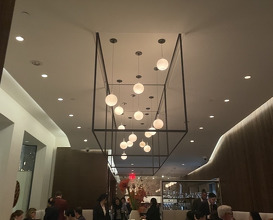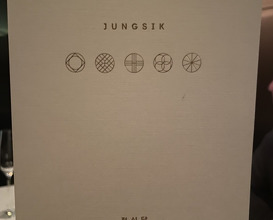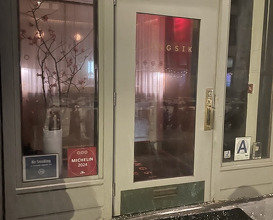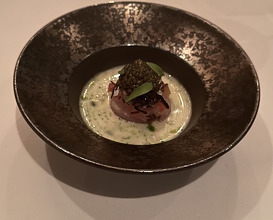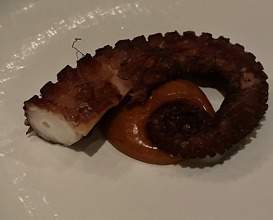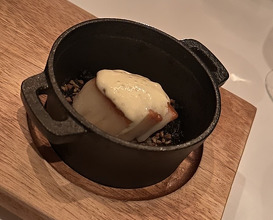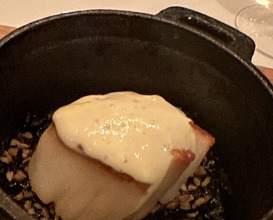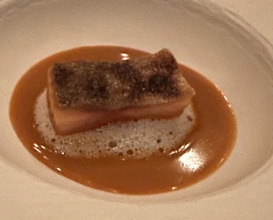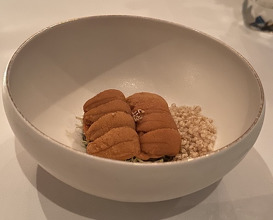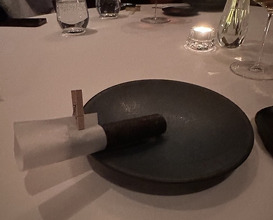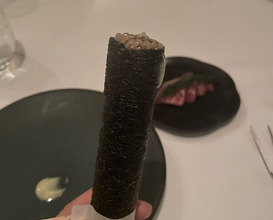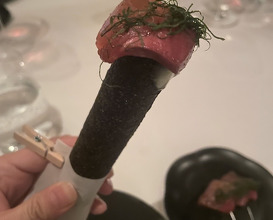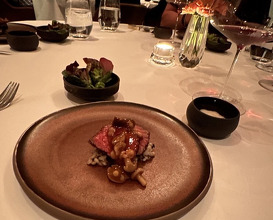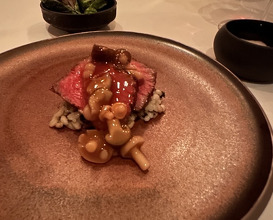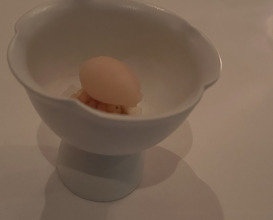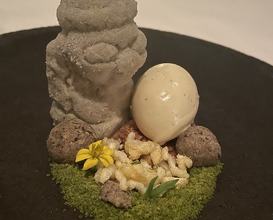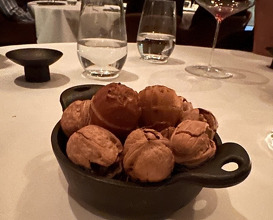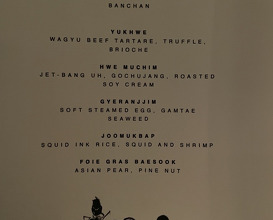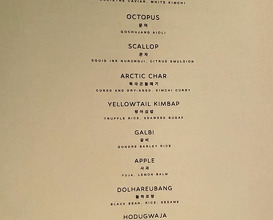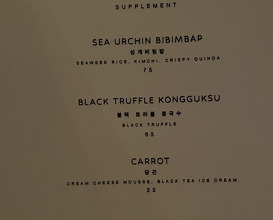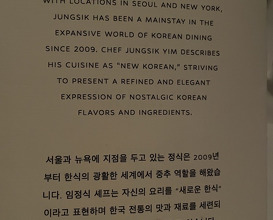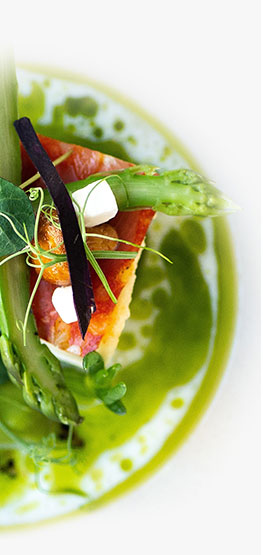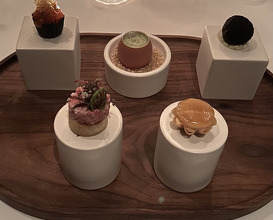
Jungsik NYC: A Three-Star Michelin Modern Korean Experience—Refined, but at What Cost?
Jungsik in Tribeca, New York, is a pioneering fine dining restaurant that reinterprets Korean cuisine through a modern lens. Opened in 2011 by Chef Jungsik Yim, it quickly earned two Michelin stars in 2013 and, in 2024, became the first Korean restaurant in the U.S. to receive three stars. Led by Executive Chef Daeik Kim, Jungsik blends Korean tradition with contemporary techniques, crafting an experience that is undoubtedly refined but, at times, feels like it caters too much to a global palate.
Our meal began with Banchan, a luxurious take on traditional small dishes. The Wagyu Yukhwe with truffle and brioche was expertly executed but leaned more European than Korean. The Foie Gras Baesook was indulgent, yet the balance with Asian pear felt like a calculated nod to familiar Western flavors rather than a bold assertion of Korean identity. The Squid Ink Joomukbap offered depth, but again, the choices felt tailored for an audience expecting refinement over authenticity.
The Signature Menu followed, with dishes like the Octopus with Gochujang Aioli, which was beautifully textured but muted in spice. The Yellowtail Kimbap with truffle rice and seaweed bugak was elegant yet lacked the boldness that defines true Korean kimbap. The Galbi with Gondre Barley Rice was perhaps the most traditionally rooted dish, yet even here, I missed the deep, soulful flavors of Korean BBQ.
We added Sea Urchin Bibimbap and Black Truffle Kongguksu as supplements—both enjoyable, but again, designed more for Michelin-starred finesse than for capturing the raw umami depth Korean cuisine is known for.
Living in Japan, it felt odd to visit a Korean restaurant in New York only to experience a Japanified version of its menu. Jungsik plays too much to its international audience, refining and smoothing out the edges of what should be an intense, deeply flavorful cuisine. While its execution is flawless, I couldn’t help but feel that too many concessions had been made—ones that weren’t necessary for a third star. And if they were, then perhaps that third star isn’t worth it.
